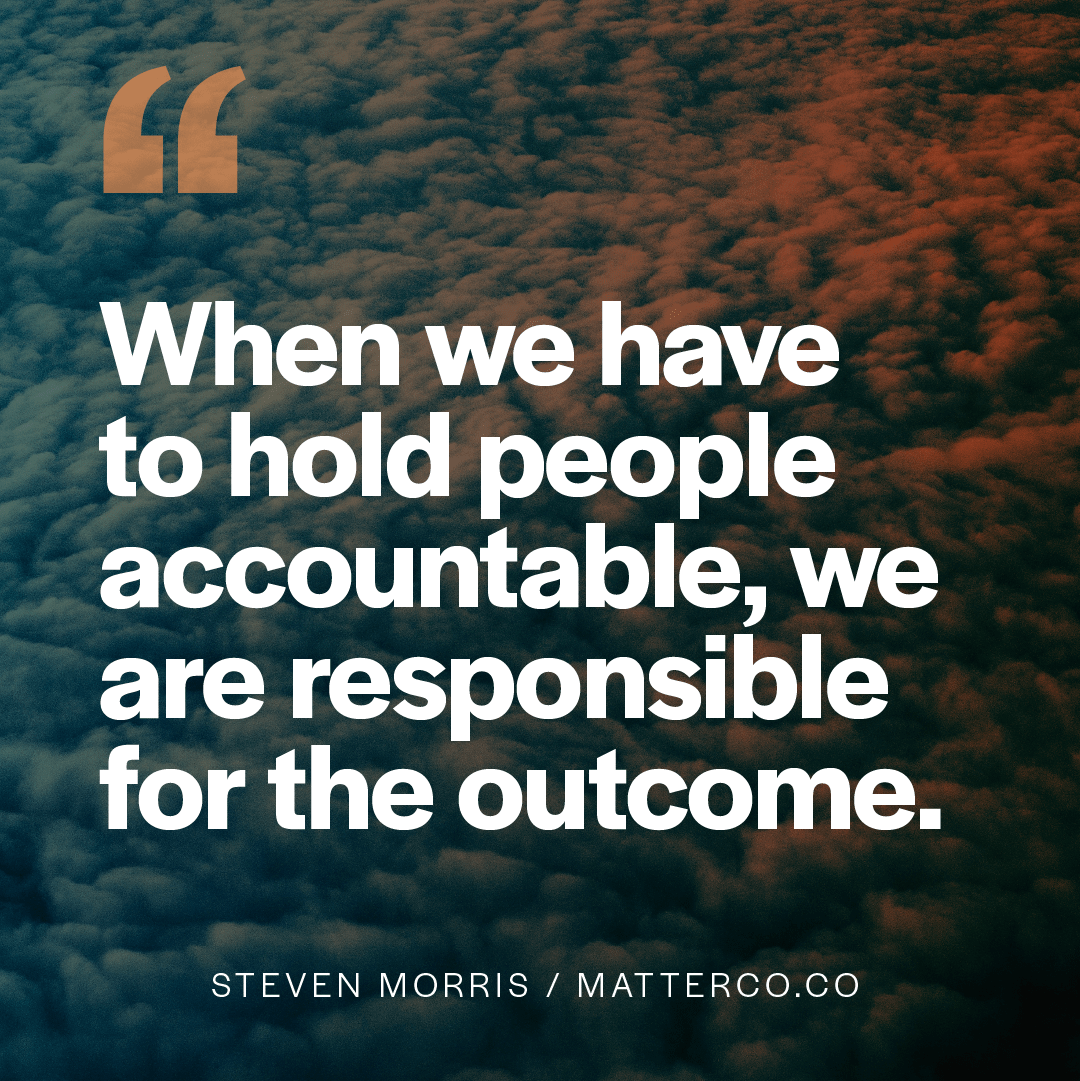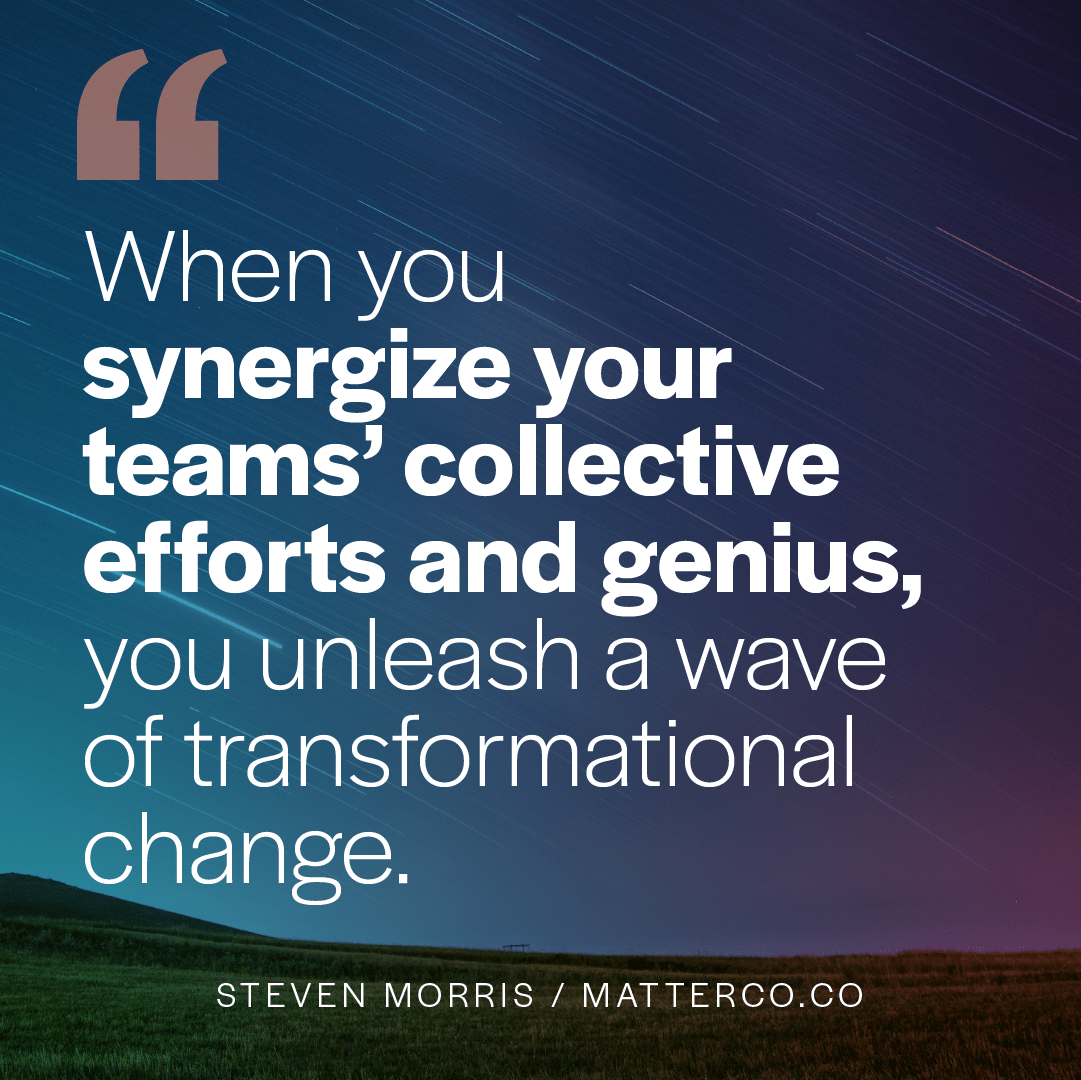
The Value Of Going Above And Beyond
During a project kick-off call, a revelation emerged from a client team member. With a touch of insecurity, they confessed to working beyond the defined borders of their role, embarking on a project outside their official job description.
Casting a cautious glance to ensure no one was eavesdropping, they whispered, “I hope I don’t get in trouble” for acting on what they believed the organization truly needed.
Unfortunately, this narrative is too familiar.
The poisonous refrain of “it’s not my job” will erode the effectiveness of a team. If permitted to linger, this attitude becomes contagious, which sends the message for team members to ignore what’s needed outside their job description.
Conversely, within the healthiest of organizations, individuals embrace the perspective that propelling the organization forward is a shared responsibility, regardless of your job description. Nurturing the well-being and future of the organization is a collective duty.
While it might defy conventional practice, in a thriving culture, deviating from the rigid lines of role responsibilities becomes your duty—especially when you spot an unmet need or an opportunity for the organization to flourish.
Ideally, this mindset should radiate from the top-down, but it doesn’t always, nor is it necessary. When leadership exemplifies this principle, the team receives the green light and glimpses what is attainable. But you don’t need this green light to solve problems that perhaps only you can see. The role of a leader, on any level of the organization, is to envision what’s possible and to create the conditions for the team to achieve that vision.
Pursuing what’s possible, irrespective of your job title or description, can serve as a model from any corner of the company. When this transformation occurs, team members witness their colleagues taking the initiative, doing what others hesitate to do, and addressing the organization’s needs. Humans are natural mimics; seeing you in action inspires others to follow suit.
However, organizational mediocrity results when team members are not granted the latitude to think beyond their roles or face repercussions. It may create an obedient and orderly environment but lacks the collaborative, innovative, and risk-taking spirit vital for any business. Every organization needs a daring dash of innovation now and then. Healthy cultures thrive on a hint of chaos, a spark of disruption, a taste for the uncommon and sometimes the uncomfortable.
Consider Google 20% Time. This widely discussed rule allows team members to spend up to 20% of their time exploring projects beyond their immediate roles. This practice has birthed innovations such as Ad Sense and Gmail.
And, then there’s Slack. It was developed by the game studio Tiny Speck, which launched Glitch, an anti-combat MMO that failed to gain any traction. However, because the company existed in three locations, it built an instant messenger during game development to better communicate online, which became a hub of activity.
Seeing the opportunity, co-founder and CEO Stewart Butterfield shut down Glitch in 2012 and began to work full-time on the messaging app, which would become Slack. In December 2020, Slack was acquired by Salesforce for $27.7 billion.
What’s possible on your team? Consider these questions:
- What are you (and others) seeing on the team that needs fixing or solving that you’ve been quietly tolerating?
- Beyond the boundaries of our role, what opportunities lie waiting for your organization to seize?
- What pragmatic steps can you take to kickstart these possibilities?
- How can you secure support for tasks, innovations, or initiatives that benefit the team?
- In what ways can you transcend your role to enhance your company as a whole?
- How can organizational leaders bestow the freedom and a welcoming environment for all team members to contribute to the organization’s prosperity?
Let’s make a clear distinction between your job and your role. Your role pertains to your defined functions and immediate responsibilities – marketing, accounting, or customer service. But your job, your actual job, is to propel the team and the company to thrive.
Achieving this necessitates, from time to time, the audacity to step beyond the confines of your role. After all, great leaders at all levels in the company create the conditions for the overall team to succeed.
Sometimes, asking for permission won’t get you to the pinnacle of what’s possible. Staying in your lane won’t cultivate collaboration or innovation. Occasionally, you must unreservedly step up and fulfill what’s needed for the organization’s greater good. Most nurturing cultures will reward those who dare to take risks and perform their job.
The genuine opportunity in business lies not in adhering to what’s permitted but in unleashing what’s possible.
If your aspiration is a flourishing business, hire individuals for their caring and creative humanity and grant them the license to nurture the organization’s prosperity.
If you found this topic interesting or valuable, here are some related articles for you.
If you want a more trusting team, a culture of belonging or a magnetic brand that attracts more of the right customers, I can help. If you'd like to explore if working together makes sense, drop me a line.







